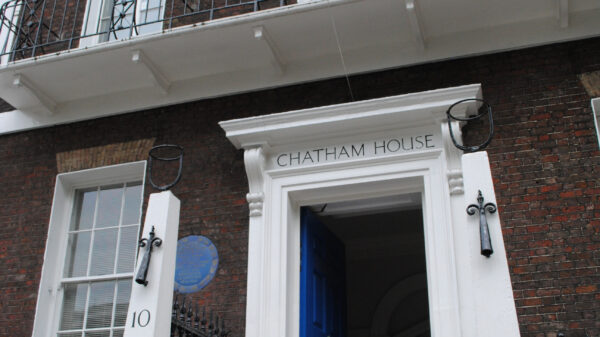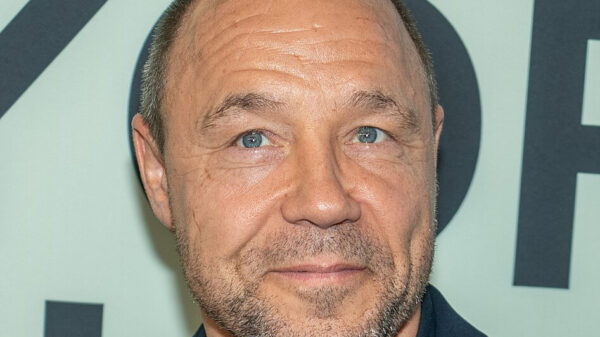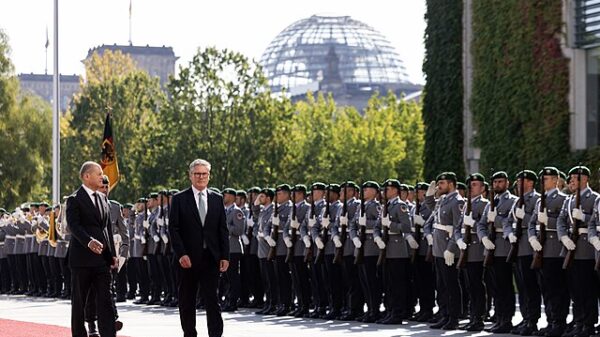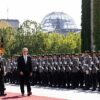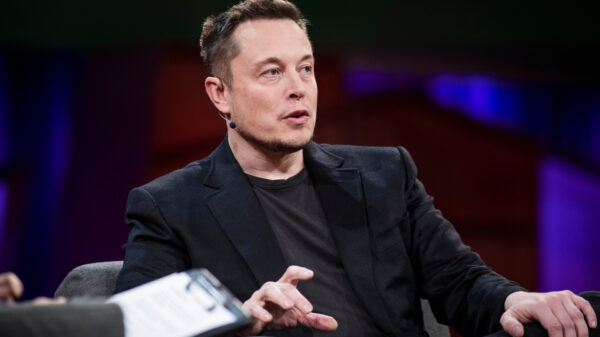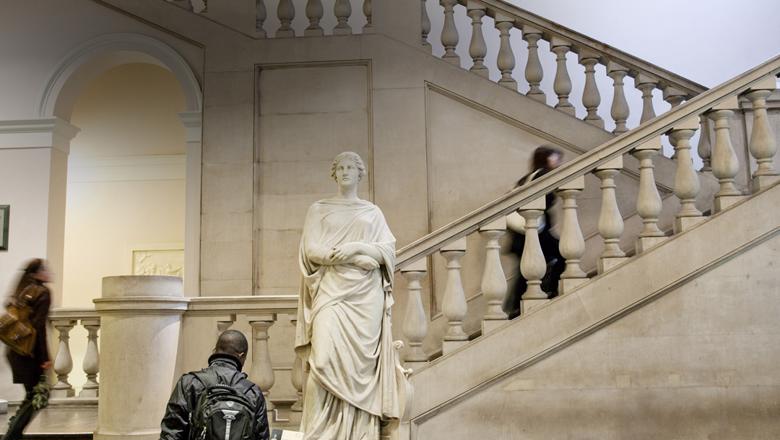Representing King’s College London, Dr Andi Hoxhaj joined Balkan leaders and UK officials at Chatham House ahead of the 11th Berlin Process Summit in London, where discussions centred on EU accession, regional security, and the UK’s evolving role in Europe.
Hosted by journalist Nina dos Santos, the panel included Edi Rama, Prime Minister of Albania; Milojko Spajić, Prime Minister of Montenegro; Natalie Sabanadze, Senior Research Fellow at Chatham House; Stephen Doughty MP, Minister of State for Europe, North America and Overseas Territories; and KCL’s own Dr Andi Hoxhaj OBE, Lecturer and Director of the EU Law LLM Pathway Programme.
The Berlin Process Summit unites the six Western Balkan nations and European partners to advance regional stability through defence collaboration and economic growth.
Balkan Accession Goals and Brexit
Earlier this year, Montenegro’s prime minister reaffirmed the goal to complete EU accession negotiations by 2026 and achieve full membership by 2028 or 2029. Spajić has put EU accession at the forefront of his plans; his party, ‘Europe Now!’, took office in 2023.
Last year, Albania’s prime minister Edi Rama also set out the goal of accession by 2030.
Post-Brexit, assisting Balkan integration is viewed by experts as a tool for the UK to rebuild its position with the EU. As per the government website, the UK’s goals in the summit include strengthening European security by “supporting vulnerable NATO Allies, […] addressing the shared threat from irregular migration, […] unlocking barriers to trade [and] promoting UK expertise and investment opportunities” for British companies.
Frontrunners for Membership
Montenegro and Albania, in comparison to neighbouring states such as Serbia, have stood out in their willingness to accept EU conditionalities for accession. The states have been called the ‘front-runners’ for membership.
The full commitment of both nations to the EU was evident. When asked about an alternative to EU accession, Rama took a hard-line, emphasising, “[for he] who wants freedom, all the freedoms, including freedom of movement – [he] who wants human rights to be always indisputable and [he] who wants rule of law to be always untouchable. There is only one option; the EU.”
Spajić furthered this sentiment, articulating the stakes at hand for both states:
“No country is more interested in EU and NATO goals as us. We have skin in the game.”
The prime ministers affirmed that they are willing to make the trade-off of sovereignty for membership, strongly backing an accession based on the European Economic Area model for growth. This nuanced membership plan grants states access to the Union’s economic benefits, primarily the EU single market, but does not grant the right to vote or veto in the Council of the EU.
Both politicians took a pragmatic approach, acknowledging they are fine with their “small nations” not being decision-makers in the Union.
Rama stated, “We follow, we don’t make decisions. When there is a big f*** up it is not us, it’s them. When they succeed, we are part of that success.”
Dr Sabanadze and Dr Hoxhaj voiced their support for this approach. Dr Hoxhaj explained that, historically, the best path to integration has been automatic market access, facilitating trade between candidate and member states. He argued that this has the additional benefit of phasing in legal integration to “more importantly allow institutions to apply EU rules and legislation.”
When asked about potential geopolitical conflicts arising from membership, at separate moments Spajić argued that “you cannot make everyone happy,” and that Montenegro would be “more than happy to help absolutely anyone in the region”.
The UK’s Position: Brexit, Migration and Domestic Policy
The elephant in the room quickly became the UK’s role in Western Balkan accession.
Hostility between Albania and the UK became evident in Rama and Doughty’s exchange. Rama humorously commented that the reason for the UK hosting the summit was that, “They miss us. They miss Europe.”
Doughty quickly responded, “We haven’t left Europe, buddy, and we certainly haven’t left our friends in the Western Balkans.”
Rama also took several digs at Vote Leave, joking, “We have challenges but when we come to Britain we feel better about those challenges”
He continued, “I don’t feel frustrated, I feel sorry,” in reference to the aftermath of Brexit.
Discussion largely centred around bilateral tensions due to migration issues. Rama claimed Albanian immigrants in Britain are used as scapegoats by UK politicians to divert attention from core issues in the country. Though no names were explicitly mentioned, in an emotionally charged moment Rama stated:
“Our community of Albanians here is giving enough to Britain for British politicians who single out Albanians to shut the f*** up, okay?
“Albanians are giving energy, are giving services, are working hard, are proud to be part of this large community of people, of diverse society. And so, whoever touches them should shut the f*** up.”
Doughty seemingly responded to the claims by articulating that shared security and lowering organised violence were central goals for all nations, and that cooperation was the way to ensure legal migration occurred.
He claimed the benefits of this cooperation were already beginning, evidenced by what he claims has been 47% decrease in illegal Albanian boats entering the UK.
On this point, Dr Hoxhaj pivoted the conversation to the domestic policy the UK should divert attention to. He referenced research by fellow KCL colleagues on high drug consumption in England, arguing that one means of dismantling organised crime was through social policy to reduce demand.
Furthermore, Dr Hoxhaj stated that the UK should work to geopolitically influence the Balkans over Russia and China. He claimed the UK can foster stability and cohesion between the Balkans and Europe by means of university grants and fellowships.
The panel concluded with a question Rama posed to Doughty:
“Tell me, what you have left because you voted leave?”
The question remains for the UK to answer not only at the Summit but moving forward as a nation facing lower employment, investment, exports and imports as a result of Brexit.
A recording of the event can be found here.


